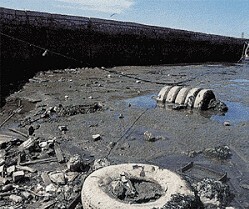With the end of World War II (1945), the main countries involved in the conflict (France, United Kingdom, Italy, Germany and Japan) were in a terrible socioeconomic situation. The destruction scenario in these nations was enormous, the infrastructure was totally shaken, besides the great population loss. Only the United States and the Union of Soviet Socialist Republics, despite the losses generated by participation in the war, managed to maintain financial stability.
After the conflict, the Union of Soviet Socialist Republics annexed several territories, perfected the development of nuclear weapons, has expanded its area of influence in Eastern Europe, in addition to having the largest planet army. The United States, in turn, allocated financial credits for the restructuring of countries involved in the World War II, expanded its zones of influence and surrounded itself with technology for the production of weapons nuclear weapons.
Due to these common aspects, the United States and the USSR came to be considered world superpowers. However, there was a big difference between these two nations – the political system: United States (capitalist) and Union of Soviet Socialist Republics (socialist). Each exerting its influence on global geopolitics.
The USA, through financing and other political measures (even the supply of arms), began to exert great influence over countries that opted for the capitalist economic system. The USSR used the same criteria to expand its areas of influence. Bipolar geopolitics was established, directly interfering in the politics of several countries. Armed conflicts were fueled by this rivalry between the two superpowers, among them are: the Korean War, War of Vietnam, Cuban Revolution, conflicts in the Middle East, conflicts between separatist groups in Africa, in addition to support for military coups, such as, for example, the military dictatorship in Brazil, the coup against President Salvador Allende in Chile, and support for dictatorial policies in several nations.
However, in the 1980s, the USSR went through a serious economic crisis, as a consequence of the policy adopted. The lack of creativity and agility to change it, the stagnation of the industrial sector, drop in productivity of consumer goods (food, clothes, etc.), in addition to the high expenditure on armaments, led to a lag in relation to the advances achieved by the capitalist countries developed.
The worsening crisis of the socialist system led to a weakening process in the Union of Soviet Socialist Republics, which culminated in 1991 in its disintegration. This fact established the end of the Cold War, and, consequently, of the bipolar world order.
Do not stop now... There's more after the advertising ;)
___________________
*Image credits: Patrick Poendl / shutterstock
By Wagner de Cerqueira and Francisco
Graduated in Geography
Brazil School Team
Would you like to reference this text in a school or academic work? Look:
FRANCISCO, Wagner de Cerqueira and. "Bipolar world"; Brazil School. Available in: https://brasilescola.uol.com.br/geografia/mundo-bipolar.htm. Accessed on June 27, 2021.

